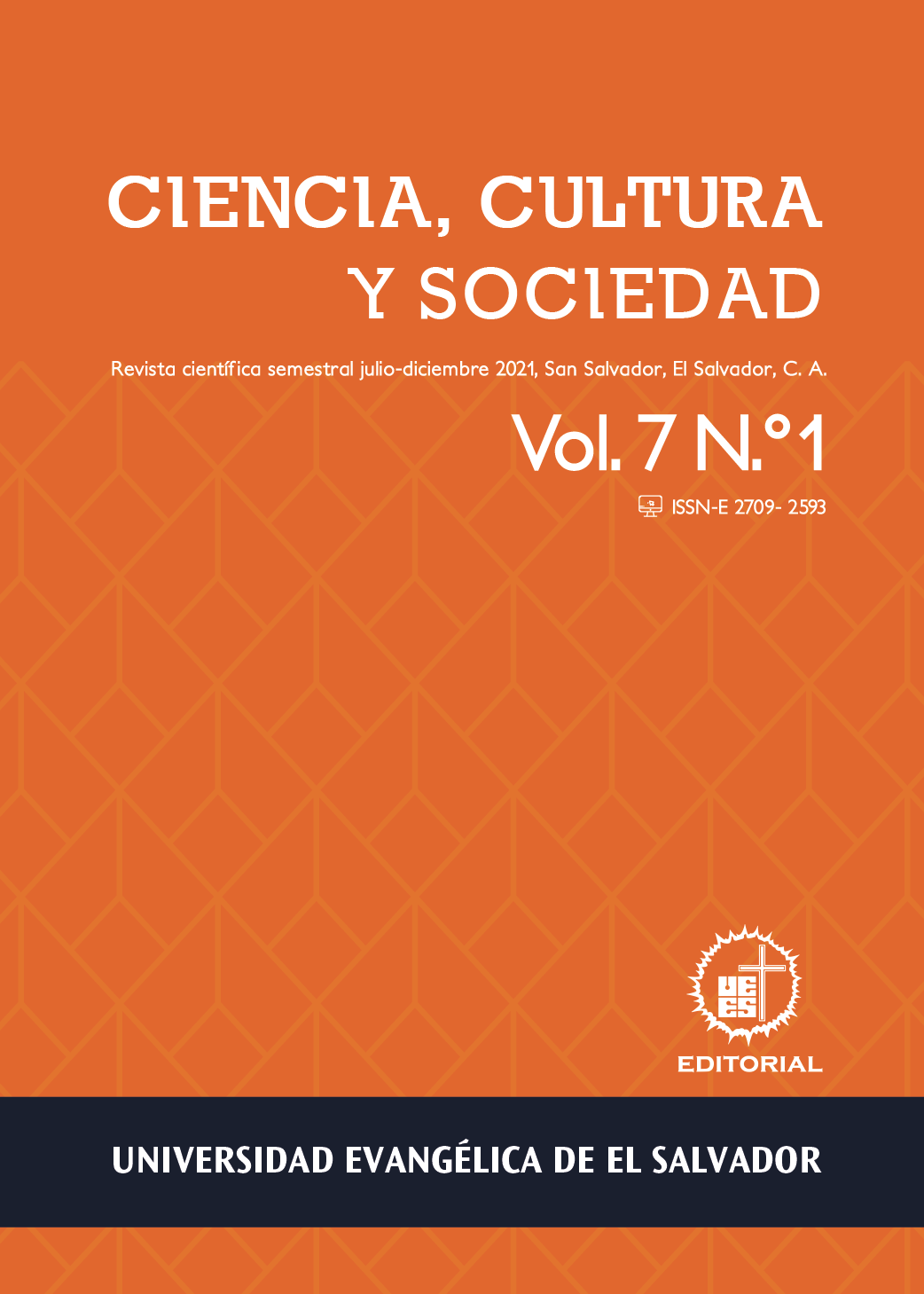Teaching experience during the Covid-19 pandemic
DOI:
https://doi.org/10.5377/ccs.v7i1.13291Keywords:
flipped classroom, teaching innovation, virtual modality, El SalvadorAbstract
The teaching experience implemented in the face-to-face subject of Ethics, Master of Public Health, Postgraduate School and Evangelical University of El Salvador. The challenge: develop in students, moral reasoning, ethical reflection and the adoption of the value system of the Evangelical University of El Salvador (UEES). In order to make the class more dynamic, the Inverted Classroom (AI) was used, a pedagogical model that transfers certain learning processes outside the classroom and uses class time, together with the teaching experience, to facilitate and enhance acquisition processes and practices within the classroom. from the classroom. For this reason, AI requires the use of ICT, videos, forums, case studies, film forums, mind maps, project-based and collaborative learning. Thus, the subject was developed from 2017 to 2019, with satisfaction and effectiveness, although in 2020 due to the COVID-19 pandemic, the UEES decided to migrate face-to-face subjects to virtual mode, for which the AI made it easier to face the crisis and continue with the development of classes through virtual means. The experience showed that students can be managers of their own knowledge, developing critical and ethical reasoning and digital skills. In addition, the teacher enriches pedagogical and digital skills; apart from the fact that the experience is replicable in other subjects and programs of the UEES.
Downloads
541
Downloads
Published
How to Cite
Issue
Section
License

This work is licensed under a Creative Commons Attribution-NonCommercial 4.0 International License.
The authors give to the copyright to the journal Ciencia, Cultura and Sociedad, and copyright in all forms and media, to be notified of acceptance of your article. The authors can publish their articles in another journal after a semester published in this volume. The content of the articles is the sole responsibility of the authors. To refer to the articles correctly quote the authors.

Ciencia, Cultura y Sociedad articles are published in open access and are under a Creative Commons Attribution-NonCommercial 4.0 International License.

